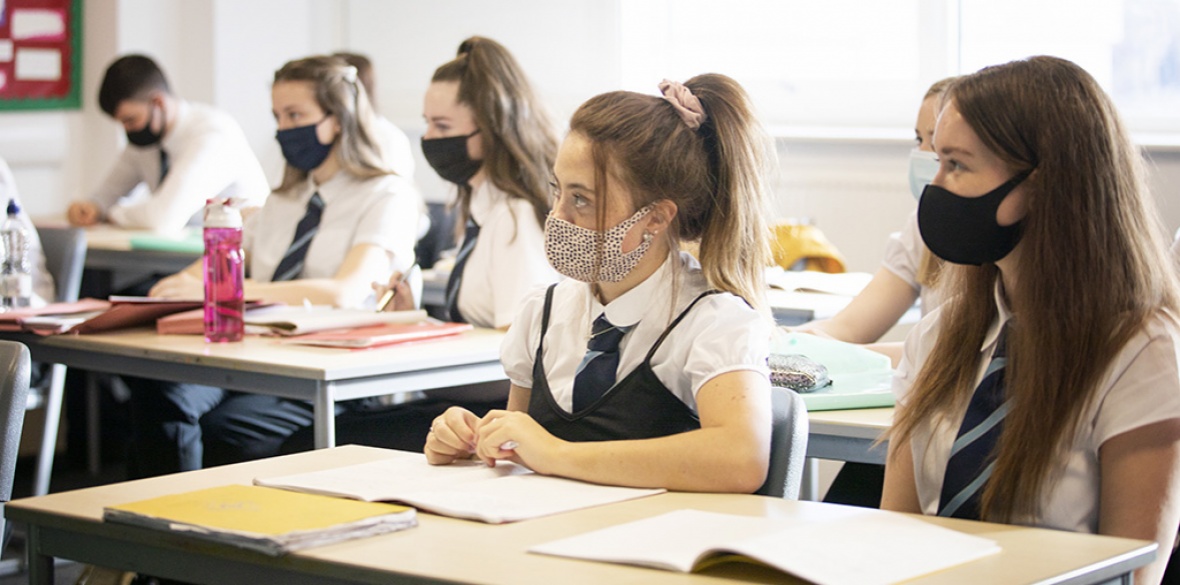This is the last article you can read this month
You can read more article this month
You can read more articles this month
Sorry your limit is up for this month
Reset on:
Please help support the Morning Star by subscribing here
THE critical role of trade unions in defending workers, in every sector, has been underlined a thousand-fold during the coronavirus pandemic.
It has been a relentless period but one which, as a movement, we have responded to with dedication, courage and insight.
As we approach this year’s annual Scottish Trades Union Congress, originally scheduled to take part in April but then rescheduled for November 17 as an online event, it may be instructive to step back a little and reflect on the past six months, before looking ahead at the challenges which remain.
The atmosphere of congress will be difficult to replicate, but the move online does offer the potential for a greater number of members to follow, and interact, with congress in real time.
The Educational Institute of Scotland (EIS) will not be alone in realising that some of the changed approaches, forced upon by necessity as Covid mitigations, also offer platforms for significant member engagement — the lifeblood of the organising agenda we need to embrace.
Health and safety webinars, for example, reaching 20,000 views within a week, is a lot of contact with members on the issues agitating them.
Trade unions can build back stronger, if we sustain that critical membership engagement.
As Scotland’s largest teaching union, the EIS has witnessed the damaging impact of Covid-19 on our education system and on the lives of our learners and teachers.
From the short-notice lockdown in March, which instantly threw our education system into whole new ways of working, to the sudden shift to a full return to schools in August, which created serious safety concerns for staff, students and parents, the EIS has sought to be there for our members.
Teachers supported the reopening of schools (66 per cent in our survey) despite the vast majority (80 per cent) expressing concerns about personal safety.
At that time, Deputy First Minister John Swinney would often say that the best way of keeping schools safe was to suppress the virus in the community, which is where we were in August.
Now, however, community infection levels are rising in most areas and we have a swathe of the country at Level 3 and some councils on the brink of Level 4.
And yet the default position of the Scottish Parliament remains that schools should stay open.
That needs to be challenged, not only because it risks the safety of staff and students but also because if we have to move to Level 4 we want it to be effective and that means taking action in schools.
Even a move to blended leaning, which would allow two-metre physical distancing to be introduced through part-time pupil attendance, would instantly make schools safer.
Physical distancing is more effective than the wearing of face coverings — the only extra mitigation at Levels 3 and 4, and even then, only for senior phase pupils.
No-one wants schools to close but if we need to do that to lower the R number and make everyone safer, a short closure period is perhaps a better option than the prolonged disruption caused by high community infection levels.
Last week nearly 38,000 students and nearly 1,500 staff were absent from school for Covid-related reasons.
Claims that schools are safe spaces ring hollow against such statistics.
The EIS is surveying members on their views on the efficacy of current mitigations, their assessment of how safe their school is, and their willingness to consider industrial action — “safety strikes” — if their council moves into Level 4 and no consideration is given to either blended or remote learning.
We are willing to talk to the Scottish government, to Public Health Scotland, to the local authorities as the employers, but ultimately we are demanding that safety is the criteria to be applied rather than maintaining political soundbites for fear of electoral backlash.
Teachers understand the importance of schools to the lives of our children — they nurture and support them on a daily basis, and despite the very many worries that teachers have around safety, they, like public-sector workers across the board, turn up for work every day.
That collective public-sector effort is the heartbeat of our country; as the EIS needs to protect our members, the STUC collectively needs to ensure the continued safety and good health of all its members.
Larry Flanagan is general secretary of the Educational Institute of Scotland.










